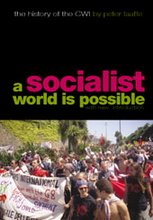US 'empire' in crisis Pt 2
Civil war
Yes and no. A widespread nationalist resistance exists in Iraq, as in Vietnam, reflected in the insurgency.
However, at present the insurgency involves the predominantly five million Sunni Iraqi Arabs. The killing of al-Zarqawi - who in any case played a minor role in the resistance - will do nothing to quell this movement, as even Bush and Blair have conceded. At the time of the capture of Saddam Hussein and the death of his sons they sang a different song however, claiming it was a turning point.
The Kurds and the Shias, who constitute the majority of the population of Iraq, have for different reasons either supported the US-led invasion (the Kurds) or tolerated it (the Shias). The Shia elite, in particular, have gone along with Britain and the US as the means of finally realising their power. But now "Shia animosity towards the American and British forces is... beginning to look like that of the Sunni at the beginning of the guerrilla war". [Patrick Cockburn, The Independent, 24 May.]
At the same time, the communal conflict between the Shias (60% of the population), the Sunni and the Kurds is intractable on a capitalist basis, and is reflected in the tit-for-tat 'civil war' which has riven the country.
This is the crucial difference with Vietnam. The opposition to US imperialism was united in the main behind the predominantly Stalinist nationalist forces of Ho Chi Minh and the National Liberation Front, which also reflected a programme of social liberation for the peasant masses in particular.
No such force exists in Iraq which US imperialism could 'hand over' to, 'declare victory' and come home. There is a clear recognition that the 132,000 American troops backed by a small of force of British troops are incapable of holding the situation in check.
British soldiers have been attacked at a rate of 60 times a month, since the beginning of the year. A thousand British soldiers have gone absent without leave (AWOL) for more than 30 days since the beginning of the war in 2003.
The US is therefore attempting to stitch together an Iraqi 'national army', which stands at 230,000 personnel at present but is projected to rise to 320,000 by the end of next year. But, as commentators in capitalist newspapers such as The Independent have recognised, "the allegiance of these forces is to the Sunni, Shia and Kurdish communities, and not to the central government. The problem has always been loyalty rather than training."
Impasse
This sectarian impasse cannot be solved on a capitalist basis. This, incredibly, is not recognised by the alleged leaders of the 'Stop the War' movement in Britain.
The Socialist Party demands the immediate withdrawal of all foreign forces from Iraq, so that the Iraqi people can decide their own fate. Yet, a complete unilateral withdrawal is unlikely to be undertaken by the US. It invaded Iraq to secure the oil and, while most of its troops (alongside those from Britain and other 'coalition' partners) could be formally withdrawn, it is highly unlikely they will immediately give up all of the 110 bases which they occupy in Iraq.
Only an effective, non-sectarian movement of workers - Kurds, Shias and Sunni, as well as Turcomen and others - can fully and lastingly break the military and economic stranglehold over Iraq exercised by US imperialism. This movement would have to be linked to the idea of a socialist Iraq organised on the basis of a democratic confederation, guaranteeing the rights of all the peoples of Iraq, including the minorities.
Nothing is more utopian than the arguments of some 'socialists' who maintain that just by withdrawing the troops the Iraqi people would then live in amity, peace and understanding. Left to their own devices, they undoubtedly would.
But on the basis of capitalism, with a historical legacy of division fomented by imperialism and capitalism and exploited by the elites in all the different communities, these sectarian divisions can grow, as the experiences of Northern Ireland and, perhaps more tragically, the Balkans have demonstrated.
Some of the siren voices that restrict themselves to the slogan 'withdraw the troops' adopted the same position in relation to Northern Ireland in the past. Withdraw British troops and Protestants and Catholics would live peacefully. Their utopian experiment was never put to the test as British imperialism, although it would have liked to have withdrawn its forces from Northern Ireland, understood that this could trigger a sectarian civil war - created by their own past policies. Therefore, despite the bombings and casualties, they settled in for the long haul against the IRA.
Similar arguments are now raised within the ranks of US imperialism to justify the continued military, and particularly economic, subjugation of Iraq, even if the troops are 'formally withdrawn to bases'. The task of the Iraqi workers and farmers, therefore, is to forge a class alliance that can show a way out of the horrors inflicted upon them by imperialism and the different communal elites who are struggling for power.








